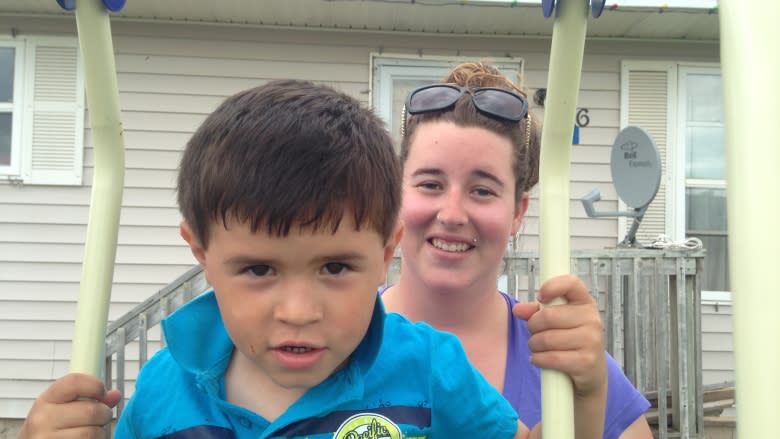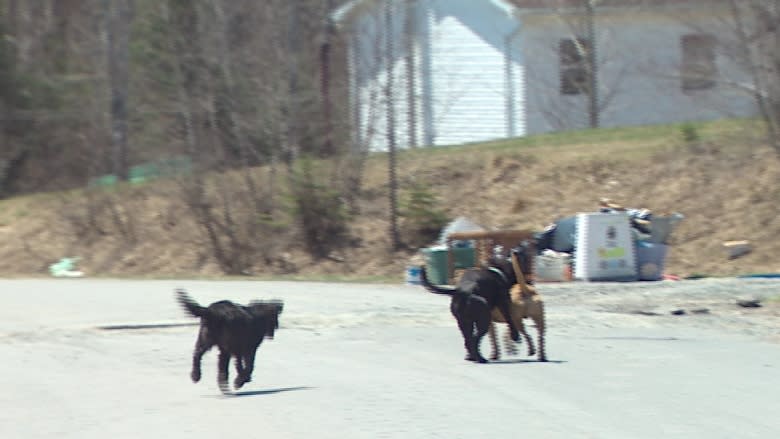Sipekne'katik First Nation implementing dog population control program
In Indian Brook, stray dogs that roam, sometimes in packs, are a familiar sight around the Sipekne'katik First Nation.
For residents like Brittany Parker, a mother of two small children, they trigger a deep fear.
"I worry all the time [about] my kids getting attacked by a dog," she said while playing with her three-year-old son on their front lawn.
It stems from an encounter last summer. Parker says she'd gone outside to feed her pet Rottweiler when an aggressive dog came out of nowhere.
"Growled, it was showin' its teeth and it just lunged at me. I just couldn't get him off. I threw things at him, I went out with a bat. Nothing. I didn't want to get too close either, right. I mean, I don't want to get bit either. It was really scary," she said.
After 20 minutes, the stray left and no one was hurt.
However, incidents like that have given rise to a name for the dogs.
"Everybody hears about res dogs," said Rufus Copage, chief of the Sipekne'katik First Nation.
He says there are lots of dogs like this that run loose and that's the name they've been given.
'We do have to have control of our dogs'
The chief and band council have recently approved a budget of $57,000 to roll out a dog-control program this summer, a first for an aboriginal community in N.S.
"The last thing I want to do to see is some child getting mangled. We don't have a ton of money, but we do have to have control of our dogs," said Copage.
He believes the program will be the first one on a First Nation reserve in this province.
Marley's Hope, a dog rescue organization based in Chezzetcook, will coordinate the program. Residents will be offered free spay or neutering and vaccinations for their pets, worth $400 to $500. The animals will also be microchipped, so if they're found wandering, their owners could be fined under a proposed bylaw.
Darlene Grady-Lunn runs Marley's Hope. She says she's looked at the experiences of other First Nations reserves around the country and says her program will involve humane trapping. The strays will then be fostered and adopted out. She says no dogs will be euthanized unless a veterinarian says they're suffering from severe medical problems.
The program is expected to roll out in July. It can't happen soon enough for Copage.
"The dogs that are leaving the community are unwanted dogs, so it'll be nice to somebody actually want these dogs," he said.
Brittany Parker says she'll take advantage of the free neutering for her pet.
"A lot of people can't afford vets either, right. I mean, they're expensive. So, I think it's a good idea," she said.



